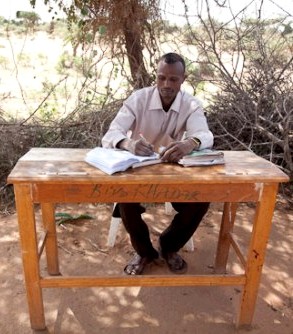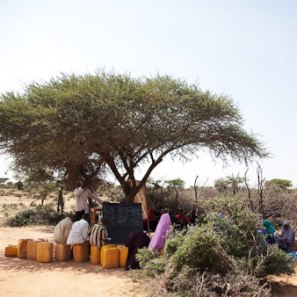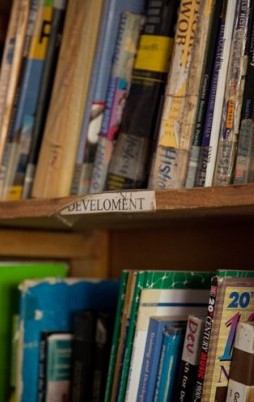|
Somaliland Science - Education Somaliland meets giant education challenge
The Hargeisa-based non-governmental organisation (NGO), Africa Educational Trust (AET) is among the main drivers in Somaliland's efforts to improve its disastrous education situation. Also government in the self-declared republic is spending much of its limited resources to re-build a nation-wide education system.
Since its unilateral declaration of independence in 1991, the unrecognised - and therefore under-funded - government of Hargeisa has tried to rebuild a public education system in the country. Many primary schools, and even several universities, have since been inaugurated, but government funds are too limited to reach the goal of offering universal schooling. The Somaliland branch of the Africa Educational Trust meanwhile has become the most important NGO providing education in the country. "Through its range of innovative educational services, AET has reached out to generations of children and adults who have missed out on an education, and has gradually raised levels of literacy and numeracy across Somaliland and beyond," Ms Peaple told afrol News. The organisation runs a number of education programmes which target some of the most rural and hard to reach areas of Somaliland. Internally displaced people, nomadic people, and people living in rural areas are taught through a radio-based literacy programme and mobile and makeshift schools. These programmes focus mainly on providing basic literacy
It also runs schools in camps for internally displaced people in and around Hargeisa. The camps go back to the civil war in 1991 and some of the inhabitants have been there 20 years. Others are new-comers from the countryside fleeing climate change which is causing livestock to die and crops to fail. Also in Hargeisa, the organisation runs a Disability Resource Centre that also provides education. Many disabilities are caused by polio or landmine incidents. In rural areas, AET schools are mostly the only education offered. In the remote village of Bacado, teacher Suleiman Khalip says his school is following the movements of the nomadic population. The service is popular: "The children walk up to 7 km to get to school through the rough terrain, often alone after their parents have initially shown them the way," Mr Khalip says. Also Somaliland authorities recognise the big effort of AET. Authorities aim at provide universal education services, but the entire government budget for 2010 is only totalling US$ 61 million. The Hargeisa Ministry of Education was allocated a total of US$ 2.44 million out of this, or 4 percent of the national budget. Government estimates the population of Somaliland at around 3.5 million. More than 73 percent of the country's population lives in poverty and 43 percent in extreme poverty. By staff writer © afrol News - Create an e-mail alert for Somaliland news - Create an e-mail alert for Science - Education news
On the Afrol News front page now
|
front page
| news
| countries
| archive
| currencies
| news alerts login
| about afrol News
| contact
| advertise
| español
©
afrol News.
Reproducing or buying afrol News' articles.
You can contact us at mail@afrol.com










